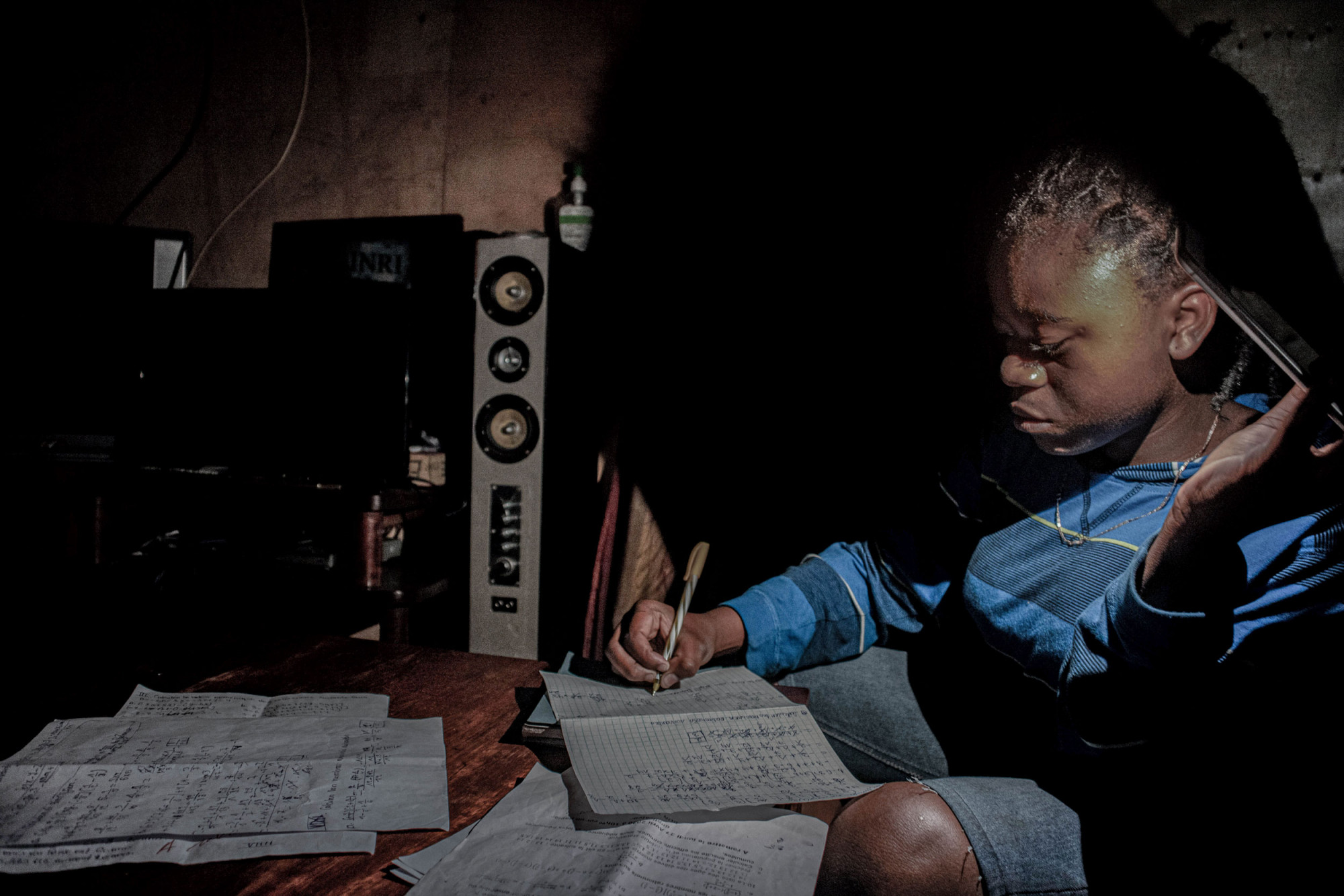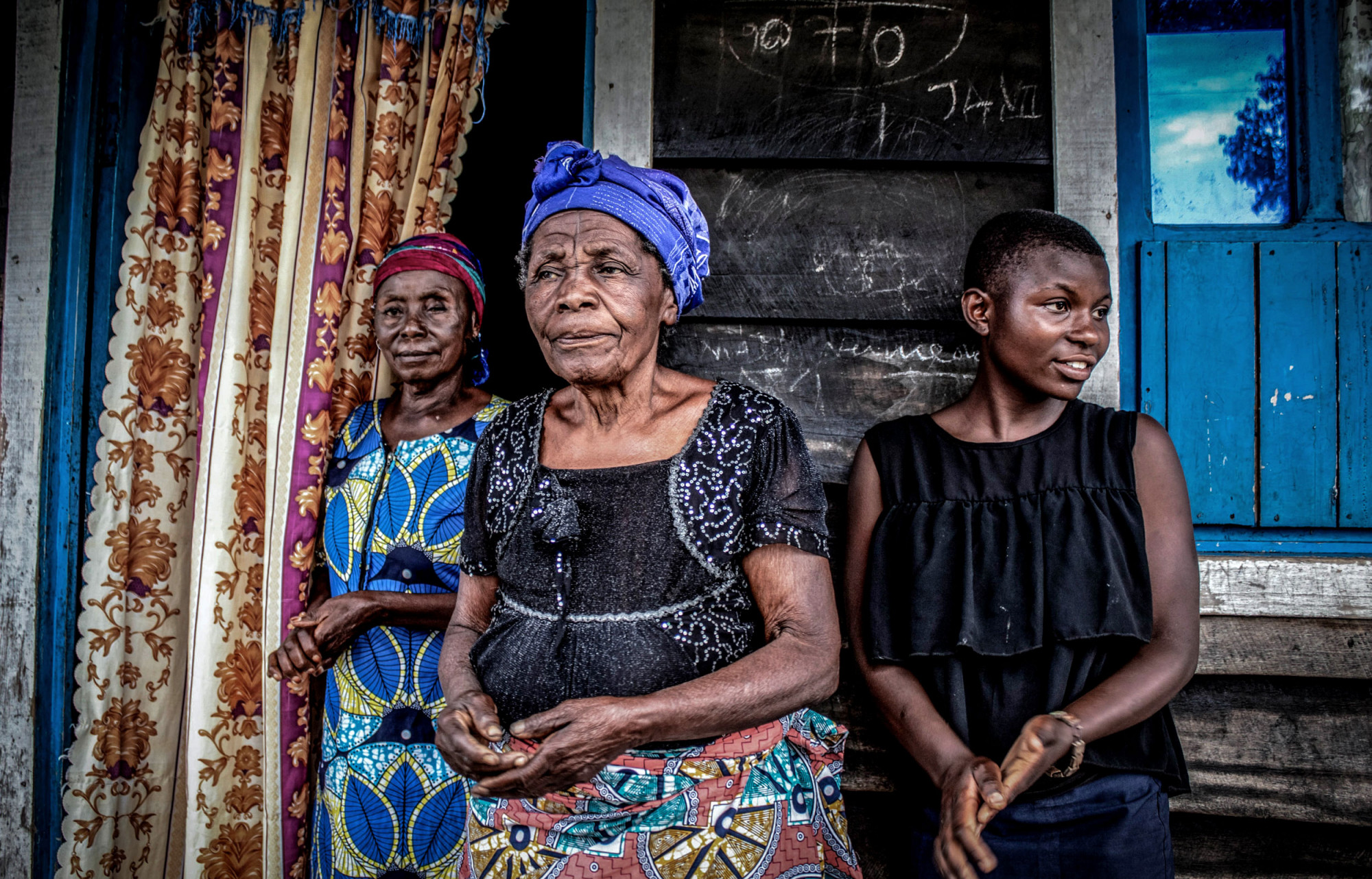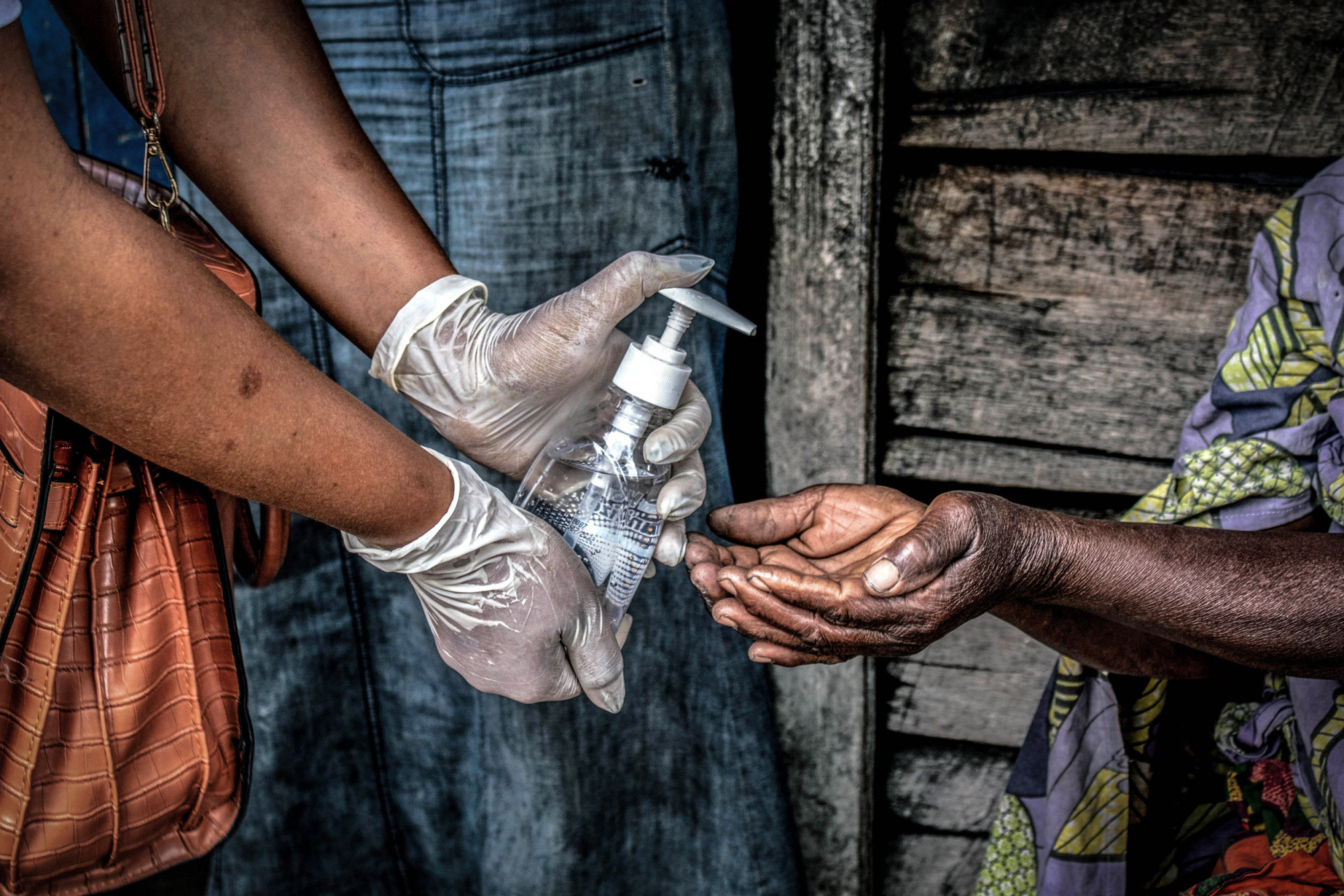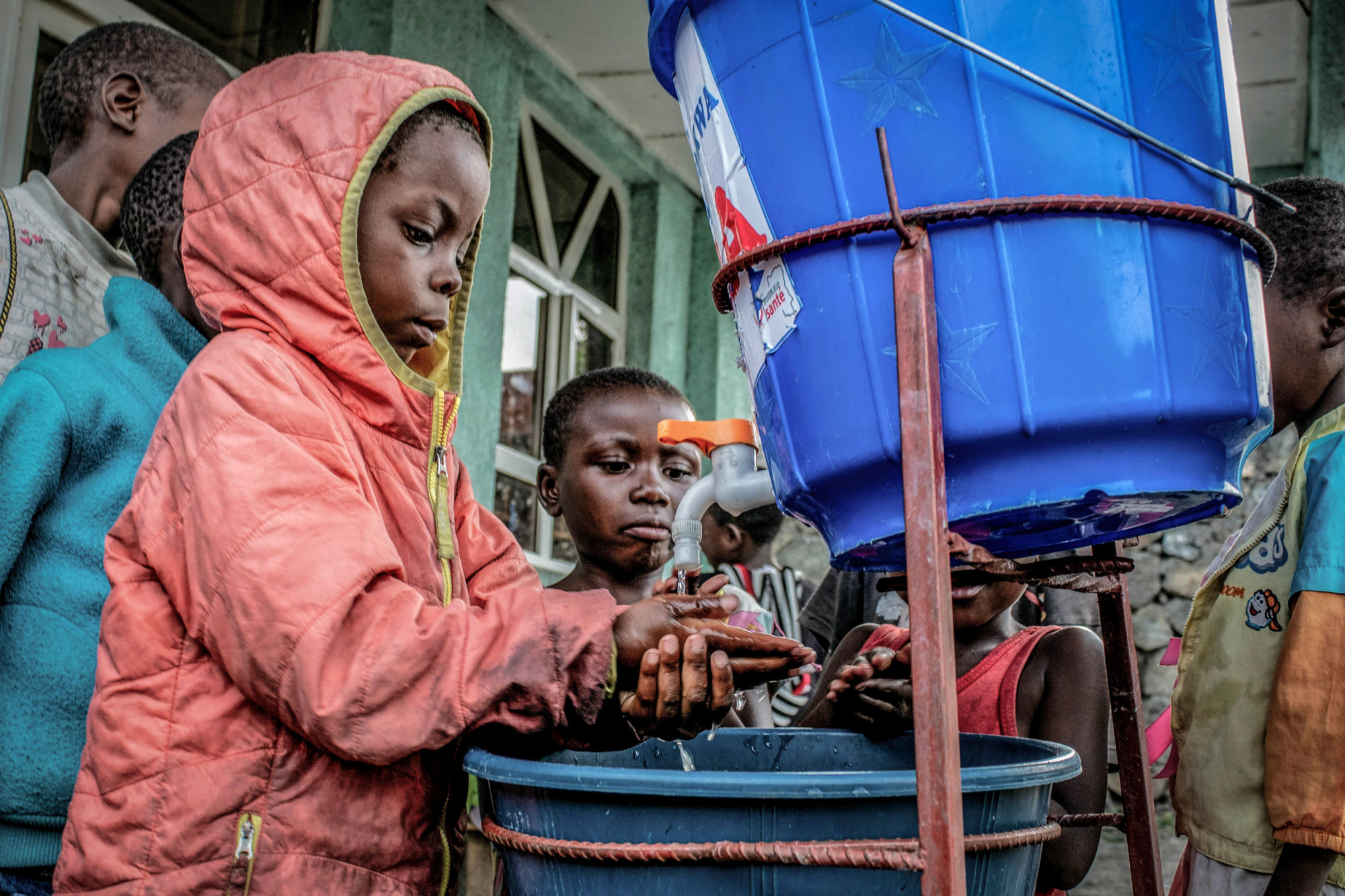


The first two pictures here were taken on Monday and Tuesday nights this week while my 13-year-old sister Marie was studying during the power cuts. Marie loves mathematics and wants to be a businesswoman. While she’s waiting for schools to reopen she’s continuing to study at home, even when we have no electricity. Here she was working by the light of our mother’s mobile phone.
At my house, we are nine people; my six siblings, my parents, and myself. Usually my father works as a carpenter and my mother sells shoes at the market, but with the confinement, everything has stopped. For a while, my mother was selling shoes in front of our house, but then her stock ran out and there are no more customers. Financially, things are more difficult now. We have to minimize our expenses.
When the first cases of coronavirus were confirmed in Goma in early April, people began to panic. Because of the Ebola epidemic here in eastern Congo, people got scared easily about a new deadly virus.



Three days after the first locally confirmed case of COVID-19, I went out with a group of young activists from a radio show called "Kazia Pale". The activists were visiting people who were especially vulnerable during confinement. We went to a neighborhood called Katoyi, an area that doesn’t have easy access to running water. We met some widows and the activists made sure they had information about the importance of hand washing. They explained that if water was scarce, they could use disinfectant gels instead to protect themselves. The women were grateful that younger people were looking out for them. We also visited an orphanage: there, the activists spent some time explaining the importance of washing hands for 20 seconds.
Now, it’s almost a month later and we are waiting to see what happens. There were five COVID-19 cases confirmed here in North Kivu Province, three of them in Goma. All have recovered. Government officials said they are waiting to lift the confinement, but we don’t know when that will happen or what things will look like when it does. When it comes to this, we’re like everyone else: a little bit in the dark.